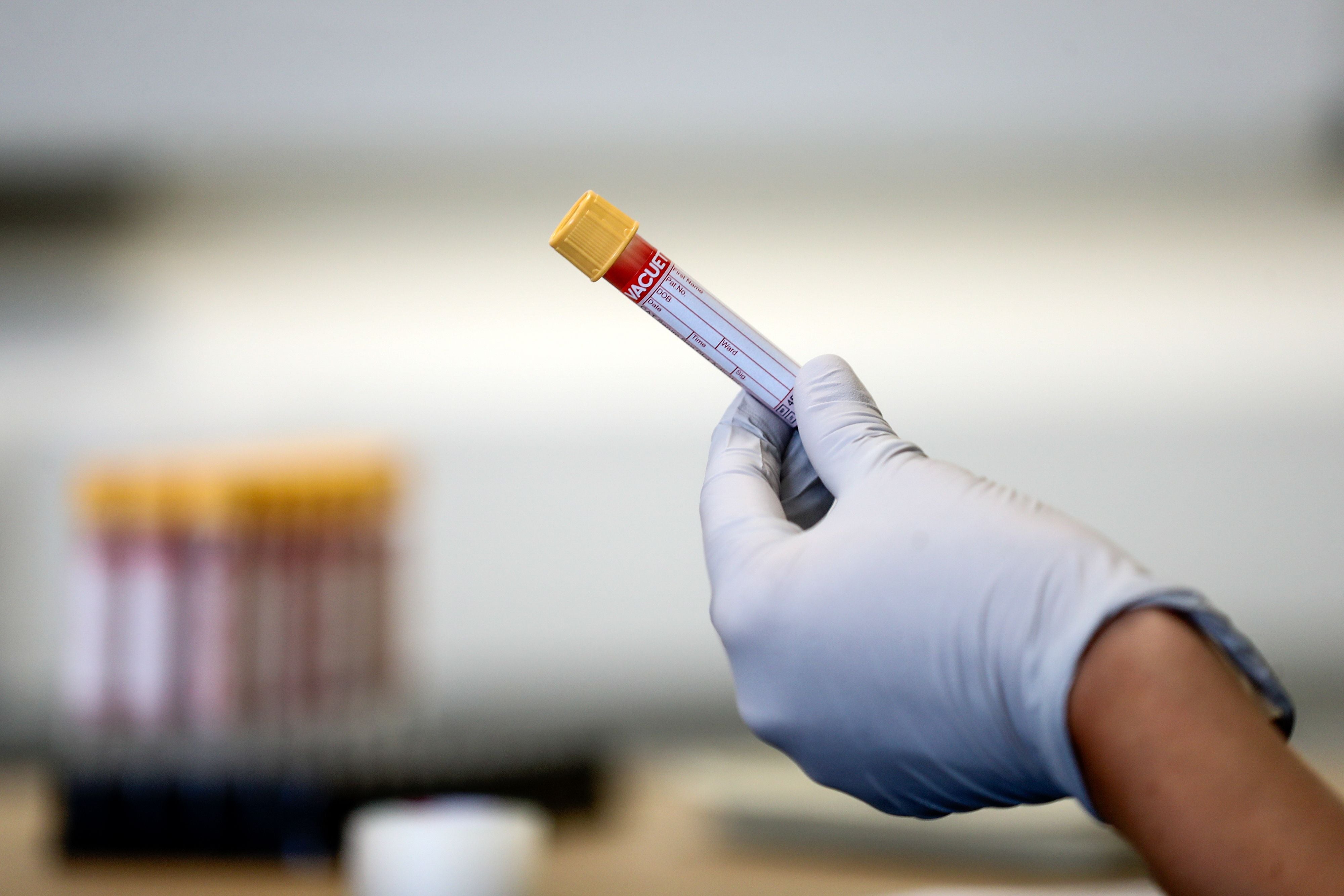Simple blood test could detect long Covid ‘within six months’
Imperial College London research suggests pathway towards diagnosis and treatment

A simple blood test to detect patients with long Covid could be available within six months, BBC Panorama has found.
Early research from a pilot study at Imperial College London identified autoantibodies common among people with long Covid symptoms.
While antibodies are responsible for fighting off disease and targeting foreign substances in the body, autoantibodies are antibodies that mistakenly target the body’s own tissues or organs causing inflammation, damage or disfunction, often resulting in fatigue and other symptoms.
The ICL study compared the blood of dozens of patients and found that the autoantibodies were not present in patients who recovered quickly from Covid-19 or patients that never contracted the virus.
They were present in patients who had previously tested positive for the virus and had reported long Covid symptoms – including fatigue, breathlessness, muscle pain, headaches, brain fog, insomnia and dizziness – for 12 weeks or longer.
Leading the research was Professor Danny Altmann of Imperial College London.
He told the BBC: “I’m famously optimistic, so I’d hope that within six months we’d have a simple blood test that you could get from your GP and that I think could have quite a big impact for people who don’t feel they’ve managed to convince their GP or accessed specialist care because instead of being my word against yours, it has a diagnostic test”.
He added that he was concerned about the number of Covid cases that could result from the lifting of social distancing measures, due to take effect 19 July.
Any coronavirus infection risks resulting in long Covid – not just those who have been hospitalised with the virus – and studies have suggested that around one in eight people who test positive for the virus have developed long Covid symptoms for at least 12 weeks.
“I think it’s unchartered territory,” Prof Altmann said, “we have effective vaccines at decreasing severe infection, they’re not on the other hand winning the battle at decreasing all infections”.
He added: “One of the things we know for absolute certain is that long Covid can ensue from any infection – asymptomatic, mild, severe – so if we’re heading into a phase of 100,000 cases per day, in the coming months and we’re saying that 10-20 per cent of all infections can result in long Covid, I can see no certainty that we’re not brewing those long Covid cases despite having a vaccinated population”.
Prof Altmann’s research remains in its pilot state, and more detailed research will be required in the coming months.
Identification and confirmation of long Covid is a first step towards better understanding the virus and treating it in the long-term, which will be good news for the 962,000 long Covid sufferers across the UK, and many more who may contract it in the coming weeks and months.
England has set up 89 long Covid clinics to assist those suffering with the conditions, however BBC Panorama discovered that four of these clinics are only seeing patients that were originally hospitalised with the virus, and 10 had waiting lists of more than 100 days.
The Department of Health said: “The government rapidly provided specialist care for acutely ill Covid-19 patients at the start of the pandemic and we’ve matched that speed and scale in our support for people with long Covid”.
ICL research from earlier this year show that an estimated two million people across the UK likely suffered with long Covid, and according to the Office of National Statistics some 385,000 people had symptoms lasting for 12 months or longer.
BBC Panorama – ‘Long Covid: Will I ever get better,’ will be broadcast at 7.35pm 12 July on BBC One
Subscribe to Independent Premium to bookmark this article
Want to bookmark your favourite articles and stories to read or reference later? Start your Independent Premium subscription today.

Join our commenting forum
Join thought-provoking conversations, follow other Independent readers and see their replies